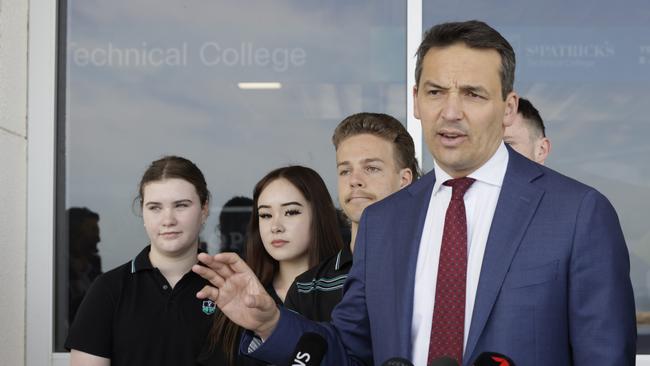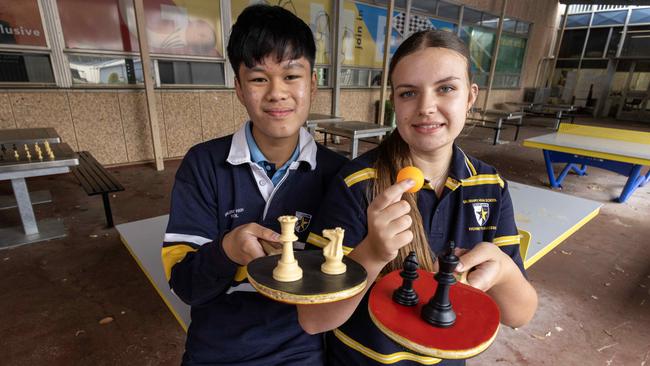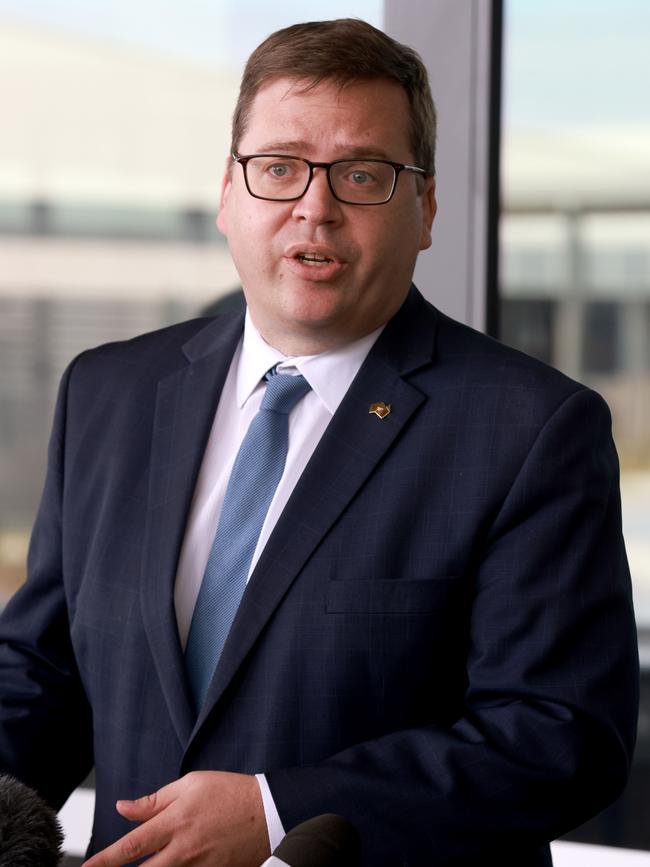Decrease in violent incidents in schools after SA government implements statewide phone ban
Since the state government banned mobile phones in all SA public high schools one major problem has been dialled back, new data shows.
SA News
Don't miss out on the headlines from SA News. Followed categories will be added to My News.
The number of violent schoolyard incidents has significantly dropped since the state government banned mobile phones in all SA public high schools, new data shows.
There were 228 violent incidents in terms three and four of 2023, after the ban had been implemented, compared to 319 in the same terms of the 2022 school year, official figures show.
The figures reflect a 29 per cent decrease in incidents, which includes cases of punching and kicking between high school students.
Education Minister Blair Boyer said the preliminary data, the first that has been made available since the statewide ban was introduced in term three of last year, showed that the state was “on the right track”.

“It’s still early days but I’m pleased to see this positive progress – I’ve always said our government will take the necessary action to get on top of the issues we inherited and that’s what we’re doing,” he said.
“This ban is about better academic outcomes for students free from distraction, improved social skills development, and reducing cyber bullying.”
Mr Boyer said the ban has brought broader benefits to schools, and was aimed at fostering better face-to-face social relationships as well as an improved learning environment.
“Anecdotally, I’ve had principals tell me about how the culture in the schoolyard has changed because kids are playing together and chatting, rather than heads down looking at their phones,” he said.
The ban applies to all personal devices that can connect to the internet, including mobile phones, tablets and smart watches — but does not apply to school-owned technologies or permitted learning devices.
Salisbury High School principal Sylvia Groves said the ban had produced extraordinary results after leadership at the school decided to introduce the department’s guidelines at the start of term one last year.

She said all 1100 year 7 to 12 students had embraced the no phones policy, which had led to better classroom learning, relationships and behaviour and was based on clear communication and expectation.
Students at the school can carry their phones but are disciplined if caught, while teachers keep very close watch on areas such as toilets.
One welcome change, she said, was the launch of more than a dozen “clubs” in areas such as Lego, chess, design, dance, creativity, mindfulness, Dungeons and Dragons and ball sports.
“From the get go it was pretty well accepted by our kids,” she said.
“It was very much a change for our kids and it has changed the whole of the school culture.

“We have appointed a leader to develop our clubs, and we see that as an area of growth that we’re still working on.”
Opposition education spokesman John Gardner said “we are always pleased when we see any evidence of improved behaviours in schools”.
“The work begun by the former Liberal government to better regulate the use of mobile phones in schools, which has been expanded by the new government, does seem to be connected to some positive results,” he said.
“However we still hear all too often about examples of dreadful cyber-bullying taking place outside of school hours, so it is important that we do not get ahead of ourselves in declaring victory.”
Originally published as Decrease in violent incidents in schools after SA government implements statewide phone ban




